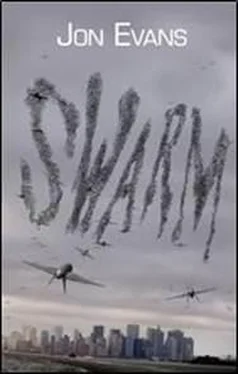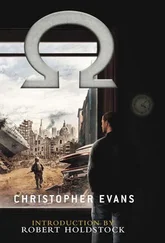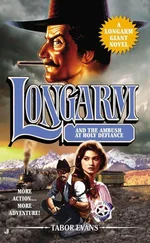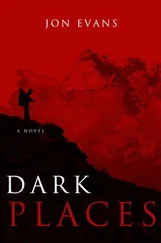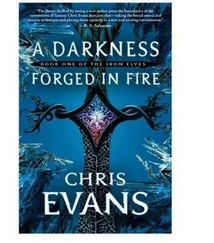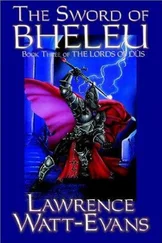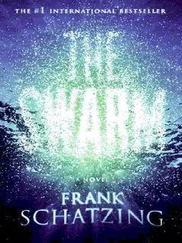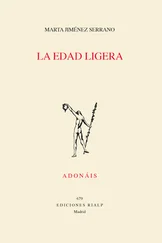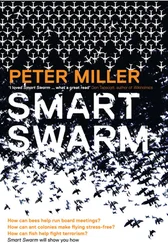But I underestimated how fast, and how boldly, Ortega moved.
Dmitri returned the next day in a black Cadillac Escalade. I saw him from my window overlooking the courtyard. He didn’t walk back into the complex so much as strut. For the first time since we had met, he looked relaxed. He entered my room with a triumphant smile and a newspaper folded under his arm, which he gave me with a flourish. It was a copy of that day’s New York Times.
The front page’s huge emblazoned headline proclaimed Dozens Killed, Hundreds Injured in Terror Attacks Across Manhattan . Others announced A New And Deadly Weapon and Drug Cartels, Not Al-Qaeda, Believed Responsible .
I stared at it disbelievingly, as if he was trying to pass some theatrical prop off as the real thing. It took me long seconds to associate those screaming headlines with Dmitri’s broad smile, Ortega’s drones, and my own work.
When I finally did, it felt like I was falling from a great height, like the earth had opened up beneath me, like an abyss had swallowed me.
“Congratulations, James,” Dmitri said. “Now you are one of us forever.”
According to the Times, six drones had been launched somewhere in New Jersey, and had reached Manhattan in minutes. Four attacked an outdoor concert in Central Park’s Sheep Meadow, divebombing the densest parts of the panicked crowd. The other two had flown into the subway system and exploded simultaneously inside the stations at 116th and 110th Street, where the walls had compressed and intensified the bombs’ shockwaves. The overall death toll was expected to climb past 100.
I had helped to kill them. I had tested the software that had murdered more than a hundred people. Central Park had been a cluster attack, the subway a tunnel attack, exactly what I had trained those drones to do.
I put the newspaper down with shaking hands and stared dumbly up at Dmitri. One hundred dead. I thought of Oppenheimer’s famous quote: I am become death, the destroyer of worlds . Sophie was Dr. Frankenstein, I was the sorcerer’s apprentice, and the world was reaping the whirlwind we had sown. It had taken a hundred innocent lives already, and I already knew there would be many more to come.
“What you will not read in that newspaper, but is also true,” he said, “is that the Americans have learned that you have been working here with us.”
“What?” I could barely speak, these were too many shocks at once. “How?”
“We told them.”
“You… ” My voice trailed off.
Dmitri smiled. “They think they have a source in the fringes of our organization, but in truth, we have a voice in the heart of theirs.”
Every time I thought things couldn’t get worse, they got worse. Ortega had a mole somewhere high in American law enforcement. That explained how he had known Sophie and I were in Haiti.
“But why?” I looked back at the New York Times with growing horror. The reality of its catastrophic news was still only beginning to filter into my brain. “What possible reason? You just killed a hundred innocent people. For what?”
“Innocent of what exactly?” Dmitri asked, with his twisted smile. “It’s important you understand, James. This binds you to us forever. Even if we were to let you go tomorrow, the American will hunt you until death. They think of you as Ortega’s chief lieutenant, his technical genius.”
“You mean they think I’m you,” I muttered.
“Neither of us are geniuses. But that doesn’t matter. They will never believe your innocence. Do you understand? This is your life now. We are your people, now and forever. The sooner you accept this, the better.”
I didn’t answer.
“Come,” he said. “Let me show you.”
There was a TV in a room that opened onto the courtyard, the room where the keys to the vehicular fleet were kept, and where the guards hung out. I followed Dmitri there, shambling more than walking, my mind still reeling from the enormity, the insanity of the news. Manhattan attacked, a hundred dead, because of me.
I looked at the iron ring I wore on my little finger, a ceremonial prize given to all engineering graduates in Canada, built from the steel of a bridge that had collapsed, meant to remind us that lives might depend on the decisions we made. I hadn’t even forgotten that. I had known, and I hadn’t cared.
CNN’s anchorwoman sounded brittle and distraught. “Many viewers may find the footage we are about to display deeply disturbing. We feel it is our duty as a news organization to depict important news even when it may be traumatizing.”
After that warning, what they actually showed wasn’t that bad, obviously edited to remove onscreen violence and gore; but the images still stabbed through me like rapiers. Grainy cell-phone footage of a drone whizzing through a subway station. More professional shots of spindly drones wheeling over Central Park. Chaotic, shaky-camera footage of panicked New Yorkers in the park, and the sound of an explosion, followed by screams of pain and fear.
“Why?” I demanded again, my own voice quavering. “What possible reason -“
Dmitri shrugged. “Ask Ortega himself, if you like. Tomorrow he will be here.”
I sat in my room and stared at nothing. I couldn’t stop thinking about New York. I tried to distract myself, tried to play video games with numb fingers, but moments later what had happened hit me again like an electrical shock, and I grunted as if struck by a hammer. I remembered walking through Central Park. I remembered standing in the 116th Street station with Sophie, after she had given a talk at Columbia University. I couldn’t help but envision the drones soaring down the subway tunnel, and diving into the densest crowds of humanity in the park. My ears replayed those awful screams I had heard on CNN again and again.
That night I knocked on my door until one of the guards on patrol let me out, and convinced him to take me by Dmitri by the simple expedient of repeating the Russian man’s name.
Dmitri’s room was much like mine, but almost pathologically clean. He answered his door dressed in underwear and a MONSTER 666 T-shirt. It was a popular brand in Mexico, at least among drug cartels; the stack of threadbare clothes they had brought me included two such shirts.
“I wanted to talk to you,” I said.
He nodded curtly, dismissed the guard in Spanish, motioned me in. The room had been built for double occupancy: two beds faced each other across a narrow central corridor. We each sat on one. Dmitri took a swig from a half-full bottle, passed it to me. It was vodka. He was already half-drunk, in an overly controlled way.
“What is it?” he demanded.
I took a deep breath. It was time to feign Stockholm syndrome, and hopefully earn some trust. What I was about to do seemed like high folly, like discarding a trump card – but then, I had already proven that I wasn’t willing to play it. And a hundred innocent people had already paid the price for that cowardice.
“I’ve been thinking,” I said. “About what you said. Me accepting being here for life. I decided, there’s something I should tell you.”
“I’m listening.”
“There’s a kill switch. A command that will disable any of your drones.”
He didn’t look surprised. “Yes. We were wondering.”
“Whether it existed?”
“If you would tell us.”
I nodded slowly. “Well, I’ll tell you what it is. You’ll want to blacklist it from your network, filter it out before it reaches the drones.”
Dmitri smiled in a superior way. “No need.”
I was flabbergasted. “You already knew it?” Only Sophie and I had known the kill-switch syntax. If they knew, then she had told them, which in turn meant that she was the one secretly retraining their drones -
Читать дальше
